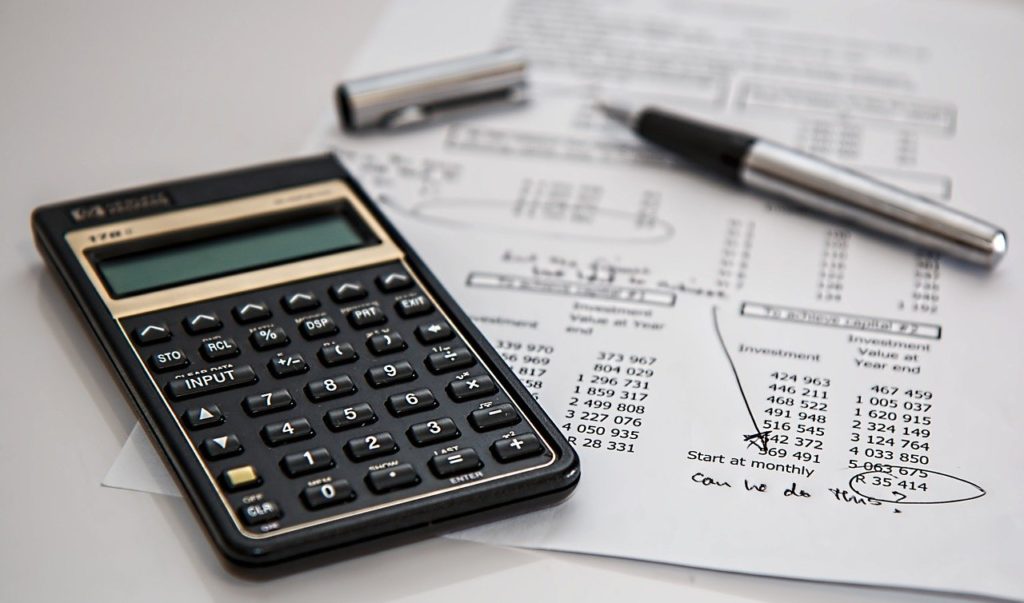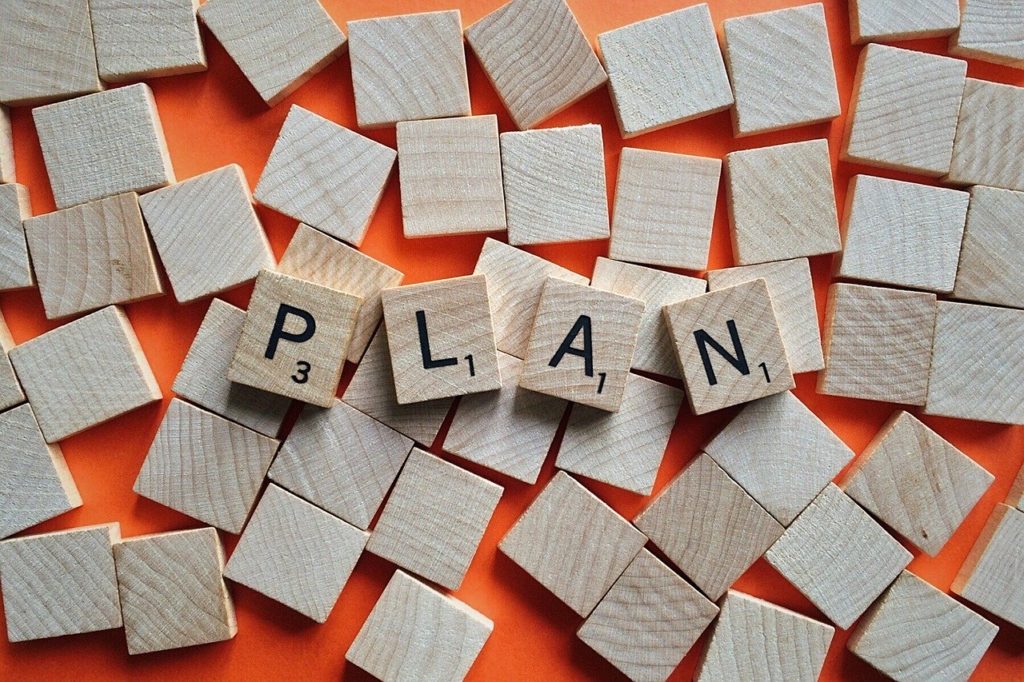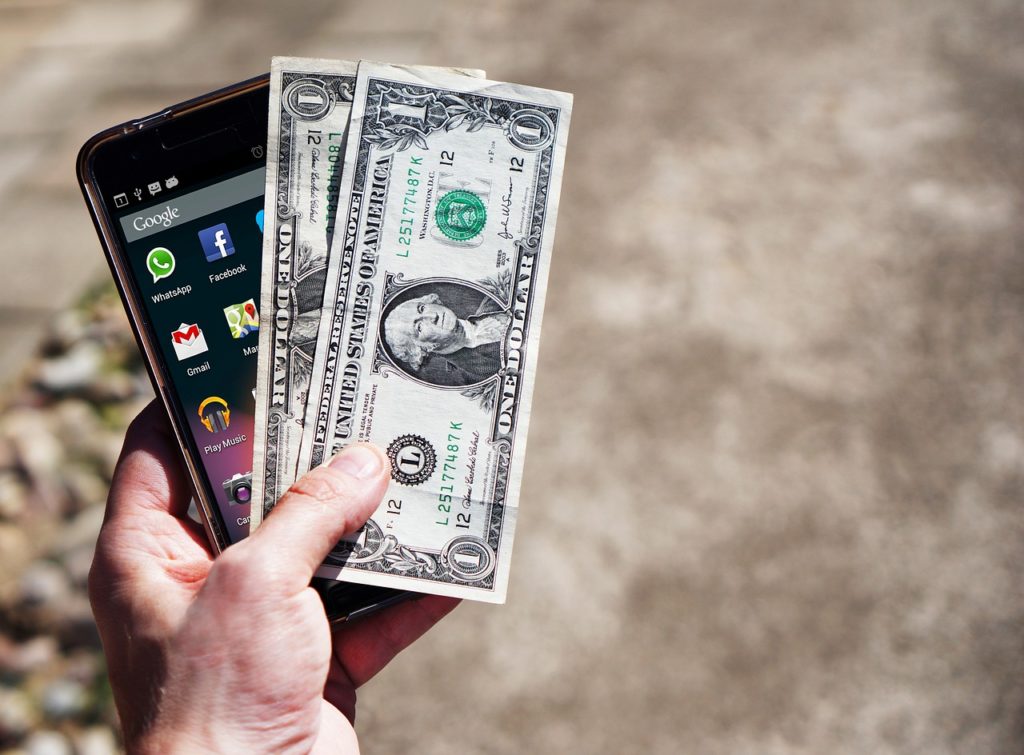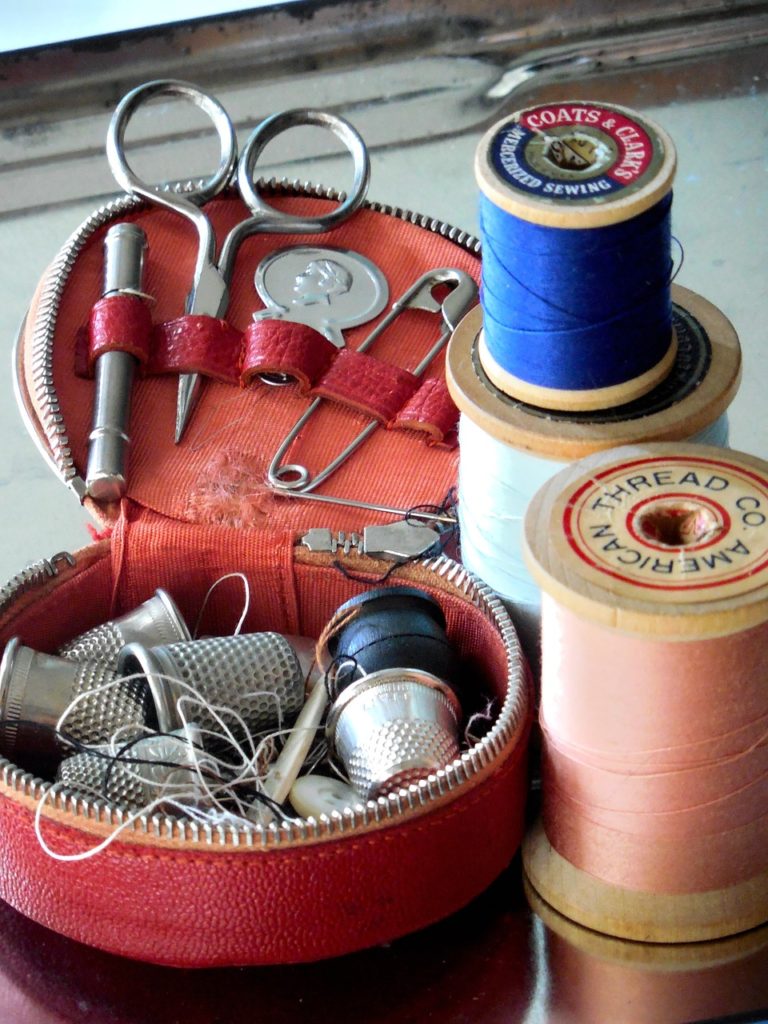
Between the roller coaster stock market, widespread unemployment, businesses being shuttered, and untold medical bills for those who have gotten COVID-19, we are definitely in a time of crisis. But let’s be honest, some people are being hit much harder by all of this turmoil than others.
If your financial outlook has tanked, I know it can feel completely overwhelming! But now is not the time to panic. It’s time to plan.
This page may contain affiliate links. Read my Disclosure Policy here.
I fervently hope that your individual financial crisis will be temporary! I’m optimistic about how our country will fare after the pandemic. Most businesses will re-open and need their workers back. But don’t wait and see when things will get better. You owe it to yourself and your family to take action. And you will be more successful if you hope for the best, but plan for the problems to last long term.
The first thing you need to do when money trouble hits is to figure out exactly where you are. Think about it, when you want to travel by car and use GPS, the system needs to know your starting point, right? The process may not be fun but it’s necessary to plan your journey for surviving a financial crisis.
The First Steps

Your first step is to look up all bills, current and anticipated, and record every one. Don’t forget those expenses that are only billed annually! It’s best to divide these by 12 or the number of months remaining until they are due. With this information, you can figure out your current monthly expenses. If you already maintain a budget or spending plan, you are that much further ahead in the process!
I’ve created a customizable excel spreadsheet for you to download to list all your expenses and create a spending plan:
Next, look at your assets: your home, a car, savings account, 401(k) or IRA. That will tell you what resources you have available should you need them; but don’t be hasty and make big decisions to sell or liquidate assets until you’ve completed your plan. Even then, think long and hard before you touch any money in an IRA or 401(k), especially if you’re less than 59-1/2 years old and subject to a 10% penalty.
I’ve created another customizable excel spreadsheet you can use for listing your assets and comparing them to your debt:
Take some time to think about what is most important to you, your priorities and goals. Every situation and every person is different, so this is an important step. Think beyond surviving a financial crisis to how you want your money to work for you. Your goal may be to build an emergency fund. Or it could be to feed your family. The difference between your income, assets, and expenses will help you determine that.
Try to instill a sense of fun and adventure for you and your family as you rough it for a time. By making sure everyone is on the same page and working toward the same goals, there will be fewer arguments, and maybe more sense of working together. Don’t forget to make time for yourself and schedule fun home activities like walking, playing games, and doing projects and meals together.
With all your information and goals written out, you can now start an action plan.
Action Plan for Surviving a Financial Crisis

Stop the hemorrhaging of funds by cutting expenses where ever you reasonably can.
If you have any credit card debt, it’s a great strategy to transfer your balance to another card that offers a special 0% interest rate, typically for 9 to 15 months. If you are carrying a balance on store credit cards, be sure to include these in your balance transfer. Even if you have a 0% special rate on store cards, they may keep accruing interest and charge the full amount if the balance is not completely paid off in time. Once you have made these transfers, you can make minimum payments while you are planning your other steps.
If balance transfers are not an option for you, keep paying your cards at the minimum as best you can. If you can’t make a payment on time or at all, call your credit card company and explain your situation. The last thing you need now is extra charges or late fees.
Medical debt can often be put on a low monthly payment plan. You can talk to each provider individually to make arrangements. While you could add this debt to your balance transfer, it’s more important to use that for high interest credit cards. Medical debt does not usually incur interest charges.
Make sure that you always pay all of your bills and do it on time. This is essential for surviving a financial crisis. Even if you can only pay a small portion of the balance, doing so can protect you from any legal action. Be sure to call the creditor to let them know your situation and ask them to work with you
If you own your home, you can look into refinancing the mortgage. Interest rates are still quite low. Depending on the severity of your personal situation, you may want to cut your losses and downsize. Some banks are allowing you to defer payments for three months, but then expect all three payments at once when the time is up. Use extreme caution if you consider this offer.
Whether you own or rent, can you get a roommate or rent out a room or storage space?
Can you sell your car, especially if you still owe money on it? An inexpensive used car may be a good alternative.
If you have cable, Netflix, Spotify or any other entertainment service, seriously consider cancelling all or most of them. Some companies will make a counter offer when you try to cancel which can mean you get the service for much less than the normal rate. Before you accept such an offer though, be certain you can keep up with it. It’s not really a deal if it keeps you from meeting other expenses.
A gym membership is a luxury for when you can afford it. Walking and YouTube exercise videos are free.
What service do you have for your cell phone? What type of phone do you have? Can you switch to one of the discount services and cut back to talk and text? Are you carrying insurance on your phone? Now’s the time to cancel it.
If you have a yard and get lawn service, cancel it and do the work yourself if you can.
Now is the time to see which car insurance company really offers the best rates! The same goes for home insurance.
Do not cancel your health insurance! Letting go of health coverage exposes you to an even greater risk of financial ruin. If you can find a cheaper plan, go for it, but don’t go without. Especially in the midst of a pandemic! You can see if you qualify for Medicaid coverage here.
Take care of your health by eating well, getting exercise and avoiding expensive and unhealthy habits like drinking too much alcohol or sugary drinks, or smoking.
Do not add any more debt to your credit cards if it can be helped. This is a short term solution that could become a huge long term problem.
Family may offer to help out. Whether that’s a good idea or not depends on the individuals involved. Be sure to talk about things like repayment (if and when) and be sure to use funds only for essential items. You don’t want surviving a financial crisis to come at the expense of your relationships.
Your church or synagogue may offer support with tangible services or donations in addition to spiritual support.
Look into services offered by your town such as food banks, and food stamps. Application information should be found on your town’s website.
Now that you have new, lower expense figures for your budget, re-assess how much of a gap you still have and check out this list of money saving strategies.
Money Saving Strategies for Surviving a Financial Crisis

Food and Shopping
Cook from scratch. It is far less expensive and generally more nutritious to prepare meals at home. If you are new to cooking, it’s helpful to have a good basic cookbook on hand. While you can look up recipes for almost anything, a good cookbook give you information on all the different cooking terms, measurements, cooking methods and times. Pick one up secondhand, from your library, or borrow from a friend.
Assess your pantry for food and other necessities. This will help you better plan for homemade meals and shopping needs. If you have canned goods of any kind, try to use up the ones with expiration dates approaching. But, I have to tell you, I take those dates as a suggestion. I believe manufacturers date their products as much to encourage people to buy more as to protect us from imminent danger. So check that any cans past their dates are not dented or swollen and use your own judgment.
Stop eating out and make food from what you have in the cabinet. If you need to eat lunch at work, you can usually pack a lunch for less than buying.
Eat less meat. Most Americans eat far more protein than necessary and meat is one of the most expensive items you can buy. . Consider adding beans, rice, and other grains to recipes to stretch them. Eggs and low fat dairy products are a good source of protein. Try to cut out processed meats like lunchmeat which can make a grocery bill skyrocket. It’s better to have slices of real chicken in a sandwich than chicken lunchmeat. Fish is a very healthy alternative but often pricey. Look for sales on frozen fish and canned tuna or salmon.
Use your oven intentionally. In other words, if you are turning the oven on, cook more than one item.
When you are in a serious crisis, it’s wise to make a rule for everyone that you will buy only what’s a necessity. It’s amazing how many things we buy are not truly necessities. How stringently you enforce this with yourself will depend on your depth of crisis.
Please do not waste your money on disposable items like cups, plates, containers, plastic bags, utensils, razors, or even toys that will not last long. Anything you buy should be reusable numerous times or indefinitely or you aren’t getting a good value.
This is true of paper products like paper towels and tissues too. I have a linen closet full of rags that I use for cleaning and I’ve switched to handkerchiefs which can be made by cutting old t-shirts or flannel shirts into squares with pinking shears.
Since it will be smart to make your coffee at home, be sure to use reusable pods if you have a Keurig-type coffee maker. Then you can choose to refill it with less expensive coffee!
Make water your drink of choice! But don’t buy bottled water, even if there is a problem with the water where you live. You can buy an economical filter for your kitchen faucet or at least buy water in gallon jugs which will save you money.

When you need to shop for groceries:
- Don’t shop hungry.
- Leave the kids home.
- Always shop with a list and stick to it.
- Check store flyers before going to the store so you can plan to take advantage of sale items when you plan your meals.
- Go on the store website and sign up for any digital coupons for items you need.
- Buy in bulk when possible, always comparing the unit price (such as price per ounce) to get the best value.
- Buy store brands over big manufacturers if the unit price is better.
- Use paper coupons only when they make the unit price of an item better than that of a store brand.
- Use cash back apps if you still have a smart phone. (More on this below!)
Beyond food, If there is an item that you’ve determined is a necessity, take these steps before purchasing:
- See if you might be able to make do using a similar item you already have.
- Ask friends and neighbors if you might be able to borrow the item. Don’t forget to check the library when you need books or other media.
- Look for free items on Craigslist, Freecycle, or even Facebook sales sites.
- Try to buy the item secondhand at a thrift shop (once they’re open again) or online at ebay, poshmark, or other site.
- Compare prices at more than one store to get the best deal.
- If you are shopping online, use a cash back site. (More on this below!)
Cash Back and Money Saving Apps and Websites Help for Surviving a Financial Crisis
If you truly need to buy something, there are some good apps and websites that will pay you cash back on your purchases.
- Rakuten (formerly Ebates) is currently offering a $30 Welcome Bonus when you use my invite link and spend $30.
- Swagbucks offers cash back on purchases and also pays you for taking surveys and watching videos.
- Inbox Dollars pays you for taking surveys, playing games, watching videos and also pays cash back on purchases through their site.
- MyPoints is similar to Swagbucks and also pays bonuses when you set a monthly goal and meet it.
- Learn more about how I use Swagbucks, Inbox Dollars and MyPoints to earn extra money from home here.
- Shopkick is a fun app that pays cash back on purchases and also for simply walking into certain stores. (Don’t use this if you can’t walk out without buying something!!) Try Shopkick and we’ll both get free points toward a gift card.
- Checkout 51, Fetch Rewards, SavingStar, ibotta and Receipt Hog all pay your for snapping a picture of your grocery receipt.
- ibotta is currently offering a $20 bonus with sign up!
- Fetch Rewards is offering a $2 bonus when you snap your first receipt.
Utilities
Turn the thermostat down in the winter and up in the summer. It’s reasonable to wear sweaters in the house in the winter and tank tops in the summer. We keep blankets on the back of sofas and chairs for a quick warm comfort when sitting. If it’s really cold in your home, get up and move around frequently to keep your blood circulating or make some hot tea. And fans in each room can be turned on when you need them for cooling.
Unplug any electronics that you are not using.
Hang your towels and laundry to dry. If you must use the dryer, always empty the filter and do one load after another to use the heat already generated.
No standing with the fridge or freezer open!! Not much in freezer, add containers of water to freeze which makes it work more effectively.
Cut electric, heat, air conditioning and water utilities more using additional tips in my article Earth Day Tips to Save on Utilities.
D.I.Y.

Since you won’t be going out shopping much, it at all, for now, it’s important to make what you have last. You can learn how to sew to do basic repairs. You can even learn how to fix your car or lawnmower if you need to. There are probably a million YouTube videos that can teach you new skills or even show how to fix your specific lawnmower problem!
Start a garden or grow micro greens. Seeds are relatively inexpensive. If you have a container and some potting soil, you can grow food.
Need gifts? Make something! Everyone loves gifts of food. Between adults, you can agree to postpone gift giving until a later time. It will be more fun once you can visit in person anyway, right?
Haircuts and manicures can be done at home. For the cost of one hair cut you can buy a home hair cutting tool that will pay for itself quickly.
Cleaning products are expensive. Use up what you have, but then consider making your own! There are many great websites that show you how to make cleaning products and even laundry detergent out of household ingredients like vinegar, baking soda or borax. Pinterest is a great place to look for these.
Earning
If you are out of work, I know your first priority is to find another job. With the current unemployment situation, that may take some time. While you are home there are some options to bring in some extra money to help you through this rough patch.
Search onlie for virtual jobs that match any skills you may have.
Take a look in your closets and see if you have any clothes, shoes, health and beauty products, etc, that still have tags or for which you have the receipts and see if you can return them.
Do you have a collection of baseball cards, coins, or anything else, that you can sell? Look for items you don’t need such as old books or electronics and try to sell them on Ebay or Facebook sales sites.
Refurbish items you have on hand or that you pick up for free and sell them..
If you are good at art, crafts, cooking or other skills, you may be able to sell the products you make.
You can earn extra cash or gift cards by taking surveys online. Please see the links above in the Cash Back and Money Saving Apps and Websites section.
Focus on the Future Beyond Surviving a Financial Crisis
Money is a tool, nothing more. It does not define who we are or our value as a person. Surviving a financial crisis is certainly stressful, but it’s still possible to enjoy your life while living frugally. It can be a time of real growth too. Our economy is not static. It will change and bring new and different opportunities.
Please share your questions and comments below.
For more money saving ideas, please subscribe to my newsletter here.